KING'S CHAPEL
|
People who suffer from schizophrenia often report hearing voices in their head, which sometimes direct them to harm themselves or others. It can be a frightening disease. Some doctors today say that the man who shouted at Jesus in a synagogue may have suffered from this awful illness.
Jesus didn’t ignore the shouts that interrupted his homily. He didn’t tell the man the voices were imaginary, nor admonish him to just get a grip on himself. Instead, Jesus acknowledged the reality of the voices, and demanded they leave the man alone. Warring “voices” within all of us are real, like the cartoon angel and devil perched on our shoulders whispering opposing advice. We commonly describe being “torn” about a decision. Jesus himself had just come out of the desert where he’d been sorely tempted by choices he ultimately refused. What we might hope to be our touchstone, Christianity itself, speaks with discordant tongues, with different traditions describing God and Christian values in radically divergent ways. Psychology today holds that the wisest among us are those who can identify the competing “voices” that still speak to us, so we can thoughtfully choose to live from our most mature and loving selves, which church people would hope to be consistent with the Spirit of Steadfast Love. In this time, for what might we and our nation seek healing? What voices would need to be called out? Are we willing to bear the pain of the process? For the man in the synagogue, the untrue voices violently convulsed him as they left, but then he was healed.
0 Comments
My Dear Friends--
As many of you know, I’ve recently returned from spending time with my family in Georgia, near Atlanta. The weather was beautiful, and I spent a lot of time with my mom in her new garden. (Some of you may recall that my last trip to Georgia involved the relocation of Mom’s sizeable compost pile-it was especially rewarding to see the fruits of that labor!) As we toured Mom’s garden, I marveled at her industry and struggled to remember the names of myriad plants while she told me their stories. At one point she chuckled, acknowledging that there were “no end of lessons” to be learned in the garden-plenty of fodder for the sermon writer! As I’ve been abiding with the Parable of the Talents-our rather difficult lesson from Matthew’s gospel this week-a moment from my time with Mom in her garden comes back to me. The gardeners among us will be familiar with the art of propagation: the taking of a clipping or cutting from one plant and repotting it in the hopes of creating another. For me, a novice with far more enthusiasm than experience, this is usually a rather fraught exercise. Firstly, I’m always loath to take shears to any plant that’s been gracious enough to survive under my care. And secondly, what if the cutting doesn’t survive? I’ve only got so many plants, after all! But as we walked among Mom’s many new beds, planted with the plants she’s carried with her from house to house, place to place, over the years, she wielded her clippers with a joyful, untroubled ease. “Listen,” she said, coating the tip of a new cutting with rooting hormone before plunging it into a pot, “no need for any angst-if it grows, it grows! If not, well....” At this she straightened and took in the backyard with a sweep of her arm. No need for angst when you’re surrounded by abundance. There are many questions we might ask about this week’s lesson from Matthew-many elements that might trip us up or provoke anxiety. But at its core, I believe we find an invitation to embrace abundance. The trouble for us is that too often it’s easier to get lost in a human economy of scarcity than to trust in a divine economy of abundance-grace doesn’t always appear as vividly and vibrantly as Mom’s many flowers. Nevertheless, it’s there: sprouting, growing, blooming-in us, and in our world. In faith and love, David Eight of us from King's Chapel are writing our "Spiritual Autobiographies" in a six-part class. Week by week we remember moments from childhood, adolescence, and with mentors which give us fresh insight into where the Holy may have been present in our lives. We've also used writing prompts from Moses' life: his unlikely journey from threatened infant to national leader. Moses moves from being uncertain about who God is to one who "talks with God face to face, as one talks with a friend." Moses' face is so "radiant" after being with God, that the Israelites beg him to wear a veil. Have you known anyone like this - who "radiates" God's glory or Love? I have. Right now I'm in a UUA training on pastoral ministry with instructors who radiate wisdom, understanding, and openness. I'd seek counselling from them anytime. By the end of Exodus, Moses is still the human he's always been, but he's tapped into a Radiance from beyond and now reflects it out to others. Frederick Handel captures this in his Oratorio "Israel in Egypt" that the choir sings Sunday; a stunning duet sings "The Lord is my strength and my song." When we're more grounded like Moses and my UUA instructors, we too join Sunday's final hymn: "How Can I Keep from Singing?" May the music and story give you hope on your journey. Joy
All that I’ve been reading during my vacation eventually came to this theme, one I resist with all my might: Join with God’s long, slow process I prefer things move quickly, with clear goals and rapid, flawless execution of the needed steps to achieve an outcome. I am discouraged when others don’t get on board, don’t see the urgency of addressing an injustice. I despair at set-backs. At the personal level, I’ve day-dreamed many a time over the years about the new habit I’d adopt – often a prayer habit -- that would presto-chango make me a new person in short order, the one I really yearn to be: kinder, gentler, more trusting of God, and more patient. I’m so impatient about becoming more patient! This week, when Jacob Blake was shot 7 times in the back by a police officer in Kenosha, Wisconsin, in front of his 3 little sons, ages 3, 5 and 8, I was thrown back again to the question we’ve faced so often: What can I do? What should our church do? Here’s what I’m going to do, for starters: (1) Join the KC group working on voter turnout for the November elections: who our elected leaders are matters. It’s the single most important thing for determining the future of our nation, how we will address racism, economic inequality, violence, and even how we treat each other. Our church has allied with three non-partisan get-out-the vote groups, simply encouraging people to vote, especially in places like Wisconsin where there have been policies that depressed voter turnout. Learn more next Monday at 3 PM, or explore here. (2) Dig into Exodus – a seminal story of how a nation and individuals changed. God was there. It took time.It was messy and hard. But it happened. There is wisdom in the old stories, and we can learn from the Black Church that long has rooted itself in this story. Follow our sermon series or take the new spiritual autobiography class. (3) Pray these two prayers from Alcoholics Anonymous, which tell truth: “God, grant that I may have the serenity to accept the things I cannot change; “Let go, and let God. “ It’s good to be back among you! With many blessings always, Joy My Dear Friends--
This week Matthew gives us the story of Jesus’ encounter with the Canaanite woman who asks him to heal her daughter. I wonder, have you had as much trouble with this story as I have over the years? There’s a phrase you may have heard of: “the scandal of the cross”. It references 1 Corinthians 1:23, in which Paul talks about Jesus’ crucifixion as a skandalon, or “stumbling block” to those expecting a triumphant messiah to deliver them from oppression. Surely, the reasoning goes, a messiah wouldn’t be subject to the ignominious death reserved for criminals and enemies of the state. Now theologians have spilled fountains of ink on the scandal of the cross, but while I understand the concept, I’ve never really felt it as keenly as I’m sure Paul’s audience did. Perhaps when you’ve grown up with the crucifix as a staple of your tradition since childhood, the scandal wears off! But this story of Jesus and the Canaanite woman? This I have long found scandalous. I remember hearing it as a child and wondering, “What kind of Jesus is this?” Who is this Jesus who first ignores, then insults this poor woman? Who answers her desperation with talk of throwing food to the dogs? Where is the Jesus of love and mercy and compassion? Where is the Jesus who confounds the expectations of his followers by consorting with outcasts, committing to servanthood, and, yes, consenting to the cross? In the end, of course, Jesus will praise the woman’s faith and heal her daughter. But the scandal of his initial treatment of her remains. What do we make of this? On Sunday I’ll share more of how I’ve come to understand this story--and, indeed, how journeying with you in this beautiful community of faith has increased my understanding! In the meantime, I encourage you to take another look at this encounter between the Son of David and the Syro-Phoenician mother. Hold it up against this week’s lesson from Isaiah (56:1,6-8) and feel the resonances. For extra credit, I heartily recommend Zadie Smith’s Intimations, a slim new volume of essays written during the early months of the lockdown. In this time of distance and separation, she ponders relationship and encounter--our journey through suffering to compassion. In faith and love, David Remembrance and Resolve: A Message on the 75th Anniversary of Hiroshima and Nagasaki Bombings8/6/2020 My Dear Friends-- Seventy-five years ago today, in the course of World War II, the United States dropped the world’s first atomic bomb on Hiroshima, Japan, killing 140,000. Days later, the atomic bomb dropped on Nagasaki would kill 70,000. Fifty-two years later, on a late summer morning much like this one, I reported to my first assignment as a young sailor, the USS John S. McCain, a Navy destroyer homeported in Yokosuka, Japan. One of the places I would visit early in the course of that first tour was Nagasaki. I remember walking the grounds of the Peace Park there, struggling to reconcile the beauty of the place with the horror of what had taken place there on August 6, 1945. In nearby Peace Memorial Hall, I veered from sorrow to anger to hope and back again as I took in the exhibits that testified to humanity’s capacity for creativity and destruction, cruelty and devotion--the depravity of war and the slow work of peace. As I gazed upward, I saw that the walls were lined with the letters of successive mayors of Nagasaki, each writing in their turn, year after year, to heads of state all over the world with one message: peace. This week our lection from the Hebrew Bible gives us Elijah listening for the voice of the Lord at the entrance to the cave at Mount Horeb. We often linger on this listening, waiting expectantly for the soft murmuring, the minute stillness, the small, still voice that we know will arrive after the wind and the earthquake and the fire. This is the benefit of knowing how the story will end. But 75 years after the atomic wind and fire that engulfed Hiroshima and Nagasaki, we are less certain of how our story will end. Today pandemic and injustice shake our foundations and we might well wonder, “Will the voice of the Lord speak to us? Whence our deliverance?” God’s words to Elijah from the stillness are a commission: Elijah is to anoint kings and another prophet in his stead. Elijah, the prophet who speaks truth to power, will now call others to that sacred duty. Here we might remember the words of our Communion Prayer: “All praise and thanks be unto thee, almighty God… who did not forsake us when we forsook thee, but sent us judges, kings, and prophets to call us back to righteousness….” As I stood in that room of the Peace Memorial Hall 23 years ago, as I looked up at the rows upon rows of letters written by the mayors of Nagasaki over the years, the sorrow and the anger and the hope began to coalesce into resolve. The resolve to remember this moment and these people, and to do the work of peace in the world. In faith and love, David Watch David's ringing of the Revere and Son Bell in commemoration of the 75th anniversary of the Hiroshima bombing: - A note from Joy King’s Chapel is a praying church! This week we’ve added a new link to our website page to make easy any request you may have: [email protected]. Requests sent here will be received by me, David Waters, and Cynthia Perkins. If you prefer, know that you can always reach out to any of us individually also.
Recently I was speaking with Cynthia Hargrove Perkins, the long-time King’s Chapel member who has recently begun chairing our Prayer Circle. I want us to be known as a “praying church” I told her. What did I mean? I didn’t mean we’d be doing something new, only that we’d spread the word about who we already are. Our largest worship service every week is called Morning Prayer, and uses our treasured prayers found in our unique King’s Chapel Prayerbook. Our Morning Light service at 9 AM is centered on individual prayers that worshippers offer out loud or silently, lighting a candle as they do. Every Sunday at 11 AM we read a “Bede List,” a list of names for whom we’ve been asked to pray. At the top of the list are always our own members, followed by family of our members, and finally by friends of our members or staff. When visitors come through our church, either on Sunday or during the week, a notebook for the entry of prayers stands open, and over the course of the year thousands of prayer requests are entered from people all over the world. As we promise them, we join in prayer with each request entered there, prayed by one of our dedicated members. Finally, our Prayer Circle prays daily for any prayer request you have – in strict confidence, held in their hearts. David and I always join our hearts in prayer for you and this blessed community. King’s Chapel is a praying church! For the last four weeks, once every week, we've had the new Black Lives Matter sign on the fence outside our church slashed or stolen. Each week we've replaced it. Sometimes the Pride banner in support of our LGBTQ community is slashed, too, or ripped down and crumbled, or covered with White Supremacy stickers that our sexton carefully removes.
This week I've checked in with other downtown Boston clergy. Their signs also have gotten slashed. A few years back a church on Newbury Street had a defiant White Supremacist group climb high on a ladder with their knives to deface the BLM sign, at 7 PM on that busy commercial street. Now the BLM sign at that church is made out of metal, and hung where it is protected by metal bars. Two other churches told me their signs are hung high, out of reach. We'll hang our signs higher, too. But make no mistake. These were deliberate acts of hate against our LGBTQ and Black communities, right here in Boston; we know, because the signs about our worship services that hang nearby, at the same level on our fence, are never defaced. One more thing about which to make no mistake: we'll continue to stand with any who are despised, because in God's eyes they are loved. I'm proud to be at King's Chapel. “Be Not Afraid,” has sunk deep within me; I sing this hymn often in these hard, uncertain days. In the next three weeks, we’ll sing it and discuss it at our Sunday worship services. The chorus is: Be not afraid, The lyrics are not Christian pablum. There is no glib reassurance that God specially protects me or you. Neither is there a promise of “easy chair Christianity,” with my feet up and me reclining comfortably. If you know the Biblical passages from which the words are drawn or listen with care to the verses of the hymn, you’d never make that mistake. Instead, this hymn invites us to a “rest” and fearlessness that come only if we reject the “conventional wisdom” of America, and follow instead the alternative, subversive “wisdom” of Jesus. It’s what I crave. What about you? For the full lyrics, click here. To participate in the contest to identify sources of the lyrics, check this out.
“Be Not Afraid” is written like Handel’s libretto in the Messiah, taking its lyrics from many different sections of the Bible and weaving them together with music to tell a powerful truth; 81 Bible verses come from 14 different book. For example, Handel takes one clause from the prophet Isaiah in the Old Testament, then later lines from Matthew, Luke and 1 Corinthians, in the New. Likewise, the 1970s hymn “Be not afraid” relies on central stories from all over the Bible. How many sources can you find for each clause of “Be not afraid”? For example, “Be not afraid,” is the most used clause in the whole Bible – found from Old to New Testaments- because it’s what we humans most need to hear. Abraham, Moses, David, Mary, and Paul all hear, “Do not be afraid.” “I go before you always,” is a phrase Jesus says to Mary in the Book of Matthew, after his resurrection (tell my friends I’ll go before them to Galilee); and in his final moments before the ascension (“I am with you always” ). It’s also said by God during the Exodus, when the pillar of cloud and of fire leads the people to the promised land. “Come follow me,” is the great invitation Jesus makes early in his ministry – “Follow me, and I’ll help you fish for people,” but sheep also follow their shepherd in the 23rd psalm. “I will give you rest” echoes from that psalm, and from the scripture we read this week, in Matthew, that begins, “Come to me, all you that are weary and are carrying heavy burdens, and I will give you rest.” But it continues with the thought of wearing a yoke! “Take my yoke upon you, and learn from me; for I am gentle and humble in heart, and you will find rest for your souls. For my yoke is easy, and my burden is light.” Can you identify the source of different lines of the verses? Joy A Message from Joy Like you, I miss worshiping together in our beautiful spaces, hearing our live musicians and congregational singing, and enjoying conversation during coffee hour. Now I preach to a little camera on the back of my phone and sing by myself while muted on Zoom. But I’m learning the unexpected benefits of our virtual worship!
5) No dressing up for church. Sitting on the couch in your pajamas with a cup of coffee has its upsides. 4) Worship any day, or every day. If Sunday morning isn’t convenient, tune in on Tuesday night. Short on time, the fast-forward button can come in handy. 3) Many more of you are worship leaders in Morning Prayer, because no one has to be at church on Sunday in order to participate. You can record your portion of the service anytime during the week and send it in. Since the church closed physically, at least 50 of you have read prayers or scripture. 2) Reading prayers aloud for others deepens the worship experience. It takes practice, slowly going over the words, to give the readings life and meaning and with video, you can polish the reading as well. 1) Morning Light can anchor your week – that’s what you’ve told us. Usually we pause the 9 AM service in the summer because so many worshippers are out of town. This year, summer travel is irrelevant! We can still share our individual prayer requests together via zoom. Last week we gathered from Philadelphia, Maine, New Hampshire, Cape Cod, Quincy, Back Bay, and Beacon Hill. To join Morning Light via zoom Sunday 9-10 AM email [email protected] for the Zoom link. It’s a highlight of my week. Reverend Joy |
Messages from King's Chapel's Ministers
The Reverend Joy Fallon
Senior Minister David Waters
Minister for Education & Membership Click here to visit our News & Updates Blog
Archives
January 2021
Categories |
www.kings-chapel.org | 58 Tremont St. Boston, MA 02108 | 617-227-2155
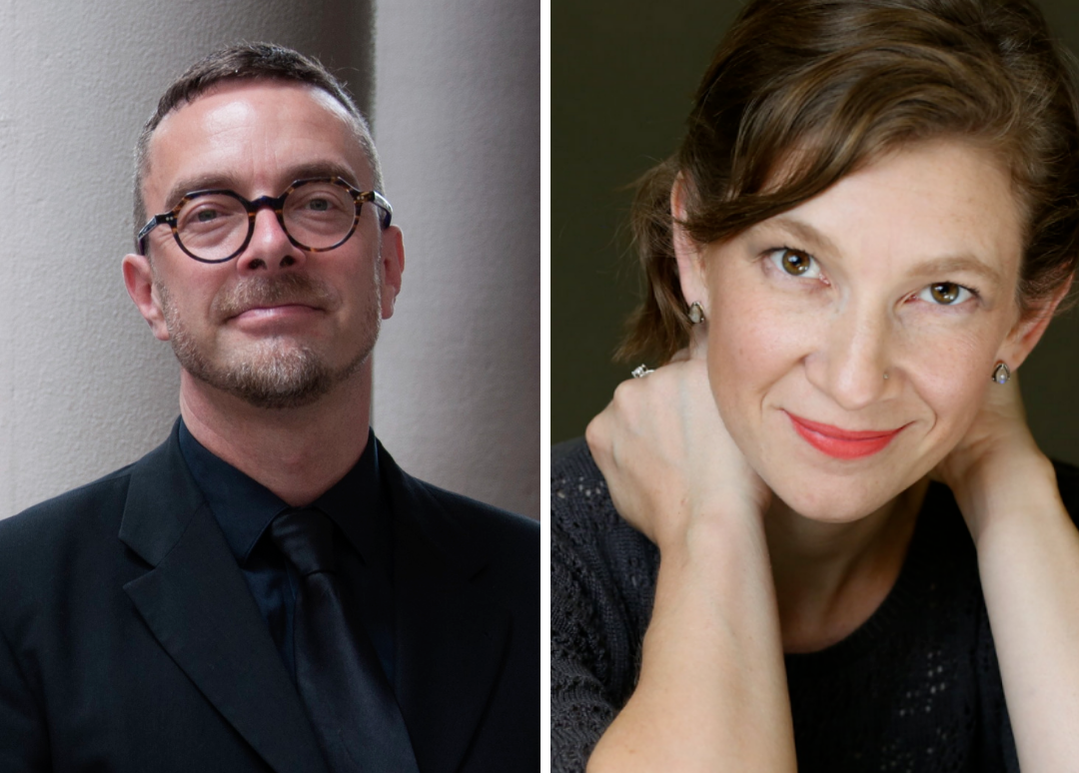
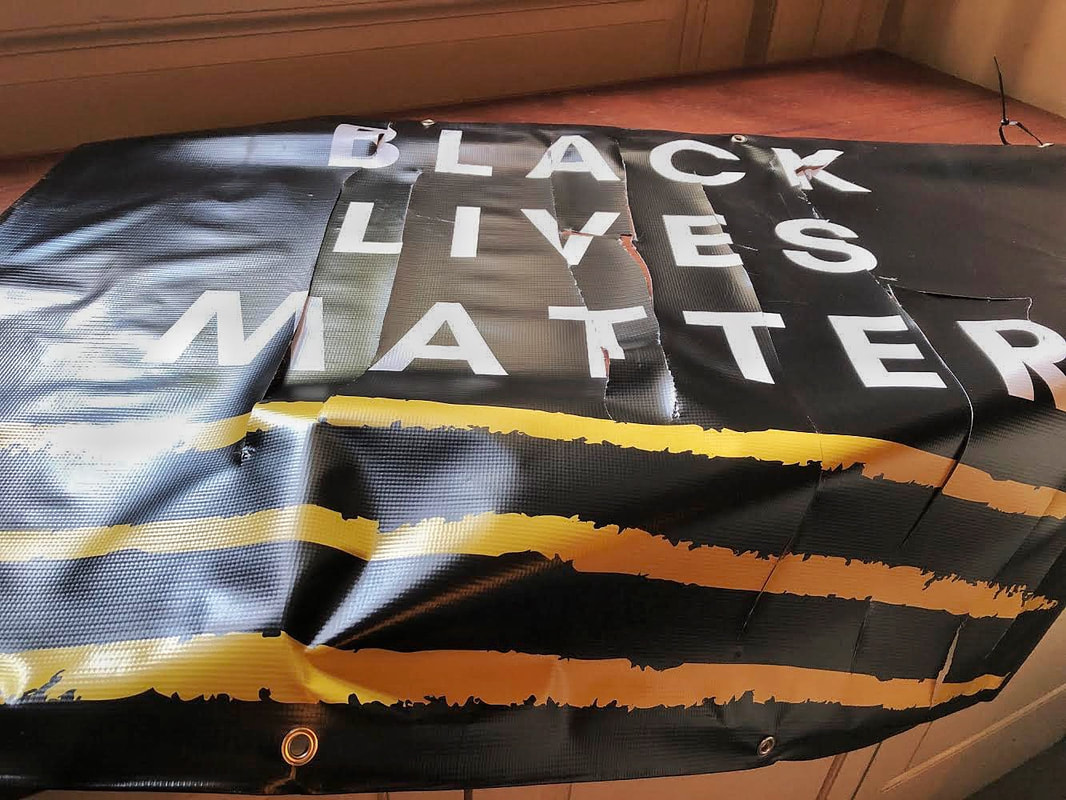
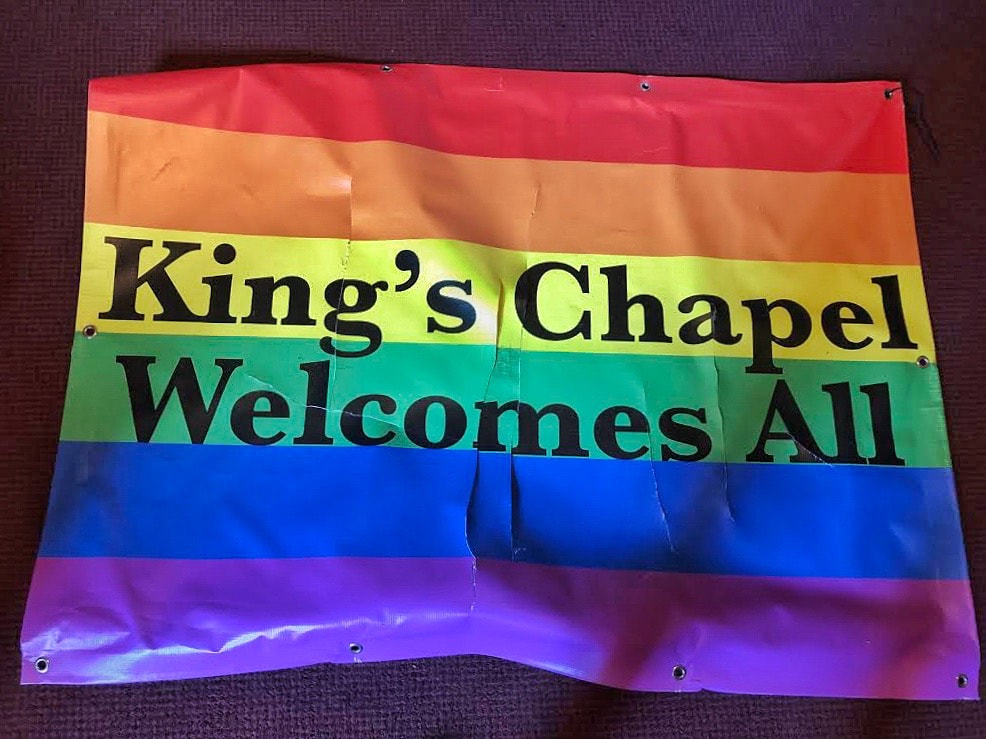
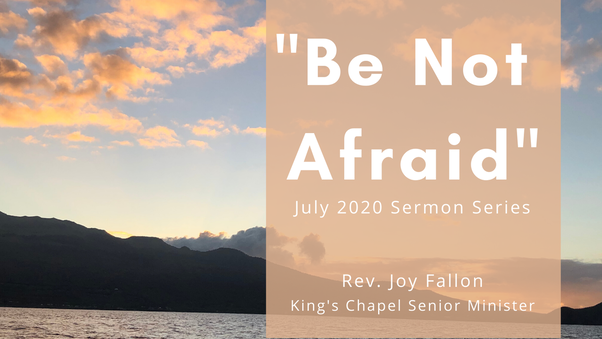
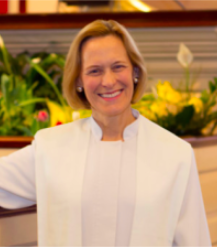
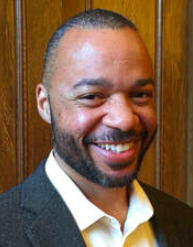
 RSS Feed
RSS Feed